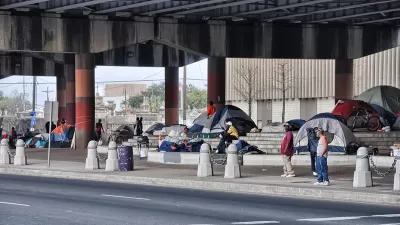U.S. Department of Housing and Development (HUD) Secretary Ben Carson testified before the Financial Services Committee yesterday. The media had plenty to report after the hearing.

Most of the media coverage of HUD Secretary Carson's hearing before the House Financial Services Committee, chaired by Rep. Maxine Waters (D-CA), focused on the gaffes and awkward tension of the hearing.
The hearing brought Secretary Carson to task for proposing major cuts to the HUD budget, proposing a rule that would reportedly displace 55,000 children from public housing, and also proposing rent increases for subsidized households (an idea that was later rescinded).
Aaron Rupar, writing for Vox, called the hearing a "disaster," and "in trying to explain these proposals, Carson demonstrated a shocking level of condescension toward members of Congress, as well as a lack of familiarity with basic housing terminology."
In coverage for The Washington Post, Colby Itkowitz focused on the Secretary Carson's mistaken understanding of the term REO, which stands for "real estate owned." Carson thought the term was Oreo, like the cookie. That gaffe led to a sharp exchange with Rep. Katie Porter (D-CA), that the congressmember shared on Twitter.
I asked @SecretaryCarson about REOs - a basic term related to foreclosure - at a hearing today. He thought I was referring to a chocolate sandwich cookie. No, really. pic.twitter.com/cYekJAkRag
— Rep. Katie Porter (@RepKatiePorter) May 21, 2019
Writing for Politico, Katy O'Donnel focused on the strong words by Committee Chair Maxine Waters: "Ticking off concerns with an 'outrageous plan' to reduce rental assistance, delays in providing disaster aid to Puerto Rico and a 'cruel proposal' to bar undocumented immigrants from subsidized housing, Waters told Carson, 'the department is actively causing harm.'"
FULL STORY: Ben Carson’s first hearing before Maxine Waters’s committee was a disaster

Planetizen Federal Action Tracker
A weekly monitor of how Trump’s orders and actions are impacting planners and planning in America.

Map: Where Senate Republicans Want to Sell Your Public Lands
For public land advocates, the Senate Republicans’ proposal to sell millions of acres of public land in the West is “the biggest fight of their careers.”

Restaurant Patios Were a Pandemic Win — Why Were They so Hard to Keep?
Social distancing requirements and changes in travel patterns prompted cities to pilot new uses for street and sidewalk space. Then it got complicated.

Platform Pilsner: Vancouver Transit Agency Releases... a Beer?
TransLink will receive a portion of every sale of the four-pack.

Toronto Weighs Cheaper Transit, Parking Hikes for Major Events
Special event rates would take effect during large festivals, sports games and concerts to ‘discourage driving, manage congestion and free up space for transit.”

Berlin to Consider Car-Free Zone Larger Than Manhattan
The area bound by the 22-mile Ringbahn would still allow 12 uses of a private automobile per year per person, and several other exemptions.
Urban Design for Planners 1: Software Tools
This six-course series explores essential urban design concepts using open source software and equips planners with the tools they need to participate fully in the urban design process.
Planning for Universal Design
Learn the tools for implementing Universal Design in planning regulations.
Heyer Gruel & Associates PA
JM Goldson LLC
Custer County Colorado
City of Camden Redevelopment Agency
City of Astoria
Transportation Research & Education Center (TREC) at Portland State University
Camden Redevelopment Agency
City of Claremont
Municipality of Princeton (NJ)





























